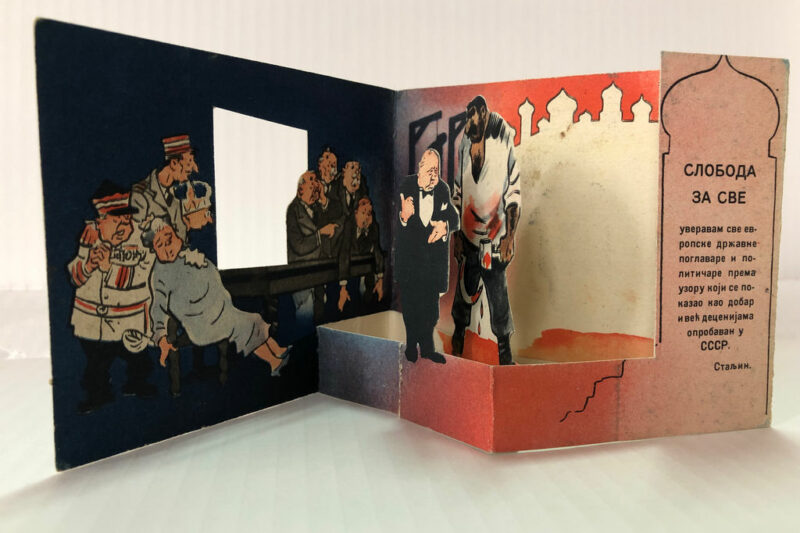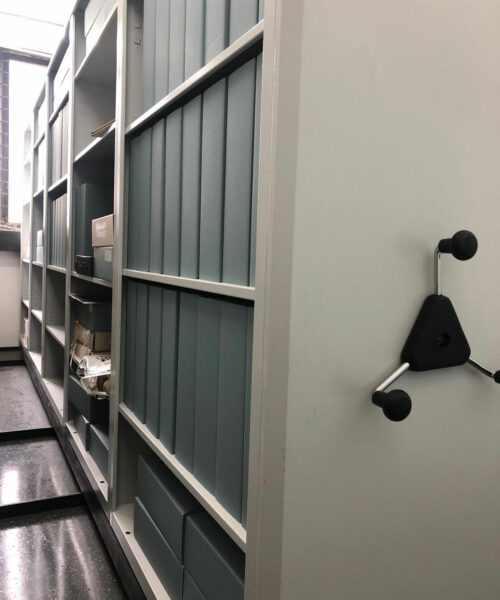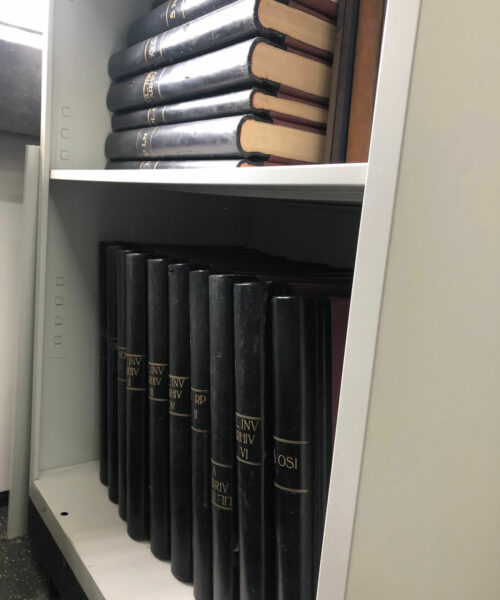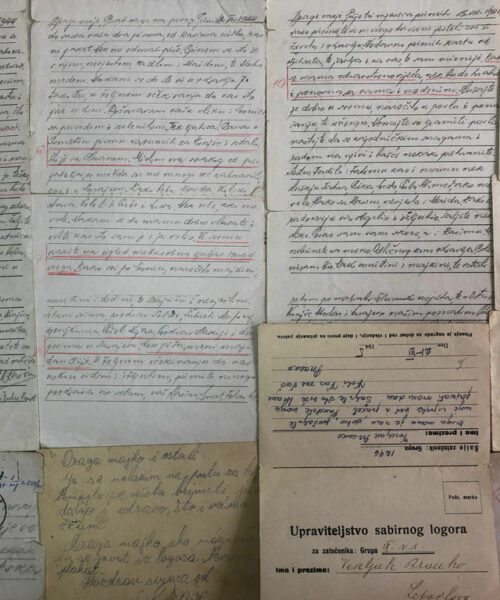About the Collection
Archival material collected in previous decades has immeasurable value and importance for exhibitions as well as for scientific research. It covers the history of Bosnia and Herzegovina from the nineteenth and twentieth centuries. Although it includes a valuable collection of manuscript materials from the period 1875 to 1941, the most significant and largest holdings are related to the period of World War II. Equally important is the material from the socialist period, which is becoming an ever more interesting field of study in the light of new research and current issues (such as the culture of memory).
The content of the collections can be classified into two main categories: archival documents and various printed materials. The first comprises letters, decrees, reports, regulations, notes, diaries, and operational plans. The second group includes leaflets, posters, charters, certificates, paper money, postage and revenue stamps as well as periodicals, brochures, albums, atlases, and others.
What is the Museum most proud of?
Material from the archive collection is particularly interesting for researchers who are dealing with the history of World War II as well as those who are engaged in the socialist period of Bosnian history. Materials relating to the Ustasha Surveillance Service, the most powerful police establishment of the Independent State of Croatia (during World War II), can be found in the collection and have been used as primary sources for numerous scientific papers, doctorates, and publications of local and foreign researchers.
The collection of archival materials holds minutes and original decisions of the meetings of the First, Second, and Third ZAVNOBIH sessions (State Anti-fascist Council for the National Liberation of Bosnia and Herzegovina), where the issue(s) of the organization of Bosnia and Herzegovina within federal Yugoslavia was resolved during the period from 1943 to 1945. Even today, current slogans like: “Neither Serbian nor Croatian nor Muslim, but Serbian and Croatian and Muslim (Bosnia and Herzegovina),” as well as ”Death to fascism, liberty to the people” arise from these documents stored at the Museum.
The collection of the archives has a complete series of stamps, extremely valuable philatelic subcollections, as well as significant holdings of paper money from the Ottoman Kaime to BAM (Bosnia and Herzegovina convertible mark). A large number of anti-Semitic posters, post cards, and letters from concentration camps are interesting material for presenting in thematic museum exhibitions, some of them beyond the borders of Bosnia and Herzegovina. The collection includes posters made by Ismar Mujezinović for the Olympic Games in Sarajevo in 1984.
Contact
Dina Memić (memic.dina@muzej.ba)




